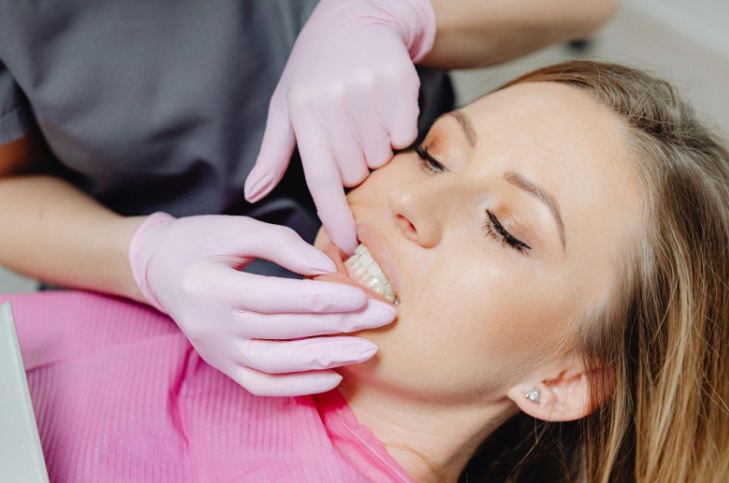Chronic Bad Breath
Chronic Bad Breath

Chronic bad breath, also known as halitosis, is a persistent problem that affects many people and can significantly impact your personal and professional lives. This condition is marked by an unpleasant odor from the mouth that stays, leading to embarrassment and diminishing self-esteem.
To effectively manage chronic bad breath, it's important to understand its causes and explore effective treatments.
What Is Chronic Bad Breath?
Halitosis is a long-lasting condition where an unpleasant smell continually emanates from the mouth. Unlike temporary bad breath that might occur after eating specific foods or drinking certain beverages, chronic bad breath persists and often signals underlying health issues. The odor can vary widely, from a sour or musty smell to more distinctive odors like rotten eggs or fruity scents. Identifying the root causes of chronic bad breath is necessary for effective management and treatment.
Local Factors Contributing to Chronic Bad Breath
Local factors primarily involve issues within the oral cavity. Addressing these factors can significantly improve breath quality:
Oral Bacteria
Our mouths naturally harbor bacteria necessary for digestion and maintaining oral health. When bacteria accumulate around the gums and teeth, they can produce sulfur compounds that create unpleasant odors. Regular cleaning and oral care can help control bacterial growth and prevent bad breath.
Food Particles
Food particles not properly removed through brushing and flossing can contribute to bacterial growth, leading to bad breath. Bacteria can thrive between teeth and along the gum line, where particles get trapped.
Poor Oral Hygiene
Inadequate brushing and flossing allow plaque and bacteria to thrive, resulting in bad breath. A consistent oral hygiene routine, including brushing twice daily and flossing daily, is needed for managing and preventing halitosis.
Systemic Causes of Chronic Bad Breath
Chronic bad breath can also stem from systemic health issues, reflecting more serious underlying conditions. Some of these include:
- Sinus Infections: Chronic sinusitis can lead to mucus drainage into the throat, resulting in bad breath. This drainage can mix with oral bacteria, creating unpleasant odors.
- Diabetes: Individuals with diabetes may experience metabolic changes that produce chemicals that cause bad breath. For example, diabetic ketoacidosis can lead to fruity-smelling breath.
- Gastric Reflux: Acid reflux, or gastroesophageal reflux disease (GERD), causes stomach acids to flow back into the mouth, contributing to bad breath. The acidic content can linger and cause a persistent odor.
- Liver and Kidney Disease: Diseases affecting the liver or kidneys can alter breath odor due to the accumulation of certain compounds in the bloodstream. For instance, liver disease may produce a musty odor, while kidney disease can produce an ammonia-like smell.
Effective Treatments for Chronic Bad Breath
Managing chronic bad breath involves addressing both local and systemic factors. Try these treatments:
Professional Dental Cleanings
Regular professional cleanings help to better manage bad breath. Skilled dental hygienists can thoroughly clean teeth and gums, removing plaque and tartar that harbor odor-causing bacteria. These cleanings help maintain oral health and prevent bad breath.
Oral Hygiene Education
For proper oral hygiene techniques, try the following:
- Brushing: Use fluoride toothpaste and brush your teeth twice daily to remove plaque and food particles.
- Flossing: Floss daily to clean between teeth and remove trapped food particles.
- Tongue Cleaning: Use a tongue scraper or brush your tongue to remove bacteria and debris that contribute to bad breath.
Treating Underlying Dental Issues
Dental problems such as gum disease, cavities, and abscesses can significantly contribute to bad breath. Dentists can create personalized treatment plans to address these issues, improving oral health and reducing bad breath.
Preventing Chronic Bad Breath
Here are some recommended preventive measures:
- Maintain regular dental visits to help prevent dental issues that can lead to bad breath. Routine visits allow your dentist to monitor oral health and address potential problems early.
- Remember to drink plenty of water throughout the day, as this can help you stay hydrated. This also maintains saliva flow, which naturally reduces bacterial growth and cleanses the mouth.
- Avoid certain foods and habits, such as garlic and onions, to help keep your breath fresh. Also, avoid smoking and other tobacco products, as they cause bad breath and increase the risk of oral health issues.
- Adding antibacterial mouthwash to your daily routine can help reduce the bacterial load and improve breath odor. Look for mouthwashes that specifically target bacteria responsible for bad breath.
Home Remedies and Lifestyle Changes
While professional treatments are essential, certain home remedies and lifestyle changes can further help manage and prevent chronic bad breath. Here are some examples:
- Dietary Adjustments: Eat fresh herbs like parsley and mint, which have natural deodorizing properties that can help freshen your breath. Avoid sugary foods as they stimulate bacterial growth in the mouth, which can lead to bad breath.
- Oral Care Habits: If you wear dentures or other dental appliances, clean them regularly to prevent bacterial buildup. Remember to follow your dentist's recommendations for cleaning and maintenance. Every three to four months, change your toothbrush. You should change it sooner if the bristles are frayed to ensure effective cleaning.
The Role of Saliva in Oral Health
Saliva plays an essential role in maintaining oral health and preventing bad breath. It helps neutralize acids, wash away food particles, and provide disease-fighting substances throughout the mouth.
Dry mouth, or xerostomia, can exacerbate bad breath. To manage dry mouth, give the following a try:
- Stay Hydrated: Try to drink water frequently, as it can help keep your mouth moist.
- Chew Sugar-Free Gum: Chewing gum stimulates saliva production, which can help alleviate dry mouth.
- Avoid Alcohol and Tobacco: Both can contribute to dry mouth and worsen bad breath.
For those experiencing chronic dry mouth, saliva substitutes or oral moisturizers can help maintain moisture levels and improve oral comfort.
Chronic bad breath is more than just a social nuisance; it can indicate serious dental or systemic health issues. At
Patriot Family Dental, we are dedicated to helping you achieve and maintain fresh breath through expert diagnosis, treatment, and preventive care. If you are struggling with persistent bad breath,
contact us for a comprehensive evaluation and personalized treatment plan.











